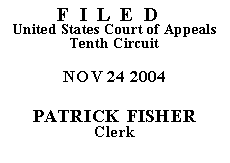

Daniel Lozano-Morales pled guilty to illegal re-entry after deportation in
violation of 8 U.S.C. §§ 1326(a)(1), (2) and (b)(2). He was sentenced to fifty-seven
months imprisonment. He appeals claiming the government improperly
usurped the district court's authority to sentence him concurrently by delaying his
federal prosecution. Exercising jurisdiction under 28 U.S.C. § 1291, we dismiss.
Lozano-Morales was deported to Mexico on October 22, 1998, following a
1995 felony conviction for aggravated battery in Dona Anna County, New
Mexico. On February 21, 2002, he was convicted of battery upon a peace officer
in New Mexico. On May 7, 2002, while in the Central New Mexico Correctional
Facility serving his state battery sentence, Lozano-Morales was interviewed by an
Immigration Officer, who discovered he had unlawfully re-entered the United
States subsequent to a felony conviction and deportation. On February 26, 2003,
Lozano-Morales was indicted for illegal re-entry after deportation subsequent to
an aggravated felony conviction in violation of 8 U.S.C. §§ 1326(a)(1), (2) and
(b)(2). On April 10, 2003, Lozano-Morales pled guilty to the indictment.
Thereafter, he filed a motion for downward departure based on cultural
assimilation, delay in prosecution and family ties and responsibilities. The
district court denied his motion and sentenced him to fifty-seven months
imprisonment, the lowest sentence in the applicable guideline range.(1) This timely
appeal followed.
Lozano-Morales claims the executive branch (the prosecutor) improperly
usurped the district court's sentencing power by delaying his federal prosecution
until the completion of his state sentence, thereby preventing the district court
from sentencing him concurrently. He contends this conduct violates the
separation of powers doctrine.
Lozano waived this argument by pleading guilty. "[A] voluntary and
unconditional guilty plea waives all non-jurisdictional defenses."
United States
v. Salazar, 323 F.3d 852, 856 (10th Cir. 2003).(2) "When a criminal defendant has
solemnly admitted in open court that he is in fact guilty of the offense with which
he is charged, he may not thereafter raise independent claims relating to the
deprivation of constitutional rights that occurred prior to the entry of the guilty
plea." Id. (quotations omitted).(3) He also waived the argument by failing to raise
it before the district court. United States v. Hernandez-Rodriguez, 352 F.3d
1325, 1328 (10th Cir. 2003) ("Ordinarily, appellate courts will not consider
arguments for the first time on appeal . . . .").
To the extent Lozano-Morales is appealing the district court's denial of his
motion for downward departure, we lack jurisdiction to review it.(4) "Our review
of a sentencing court's refusal to grant a downward departure is narrow." United
States v. Browning, 252 F.3d 1153, 1160 (10th Cir. 2001). "Absent the trial
court's clear misunderstanding of its discretion to
depart, or its imposition of a
sentence which violates the law or incorrectly applies the guidelines, we have no
jurisdiction to review a refusal to depart." United States v. Coddington, 118 F.3d
1439, 1441 (10th Cir. 1997) (quotations omitted).
[C]ourts of appeals cannot exercise jurisdiction to review a sentencing
court's refusal to depart from the sentencing guidelines except in the very
rare circumstance that the district court states that it does not have any
authority to depart from the sentencing guideline range for the entire class
of circumstances proffered by the defendant . . . . This exception does not
apply when a sentencing court concludes under the defendant's particular
circumstances that it does not have the authority to depart.
Browning, 252 F.3d at 1160-61 (quotations omitted). Because the district court
did not misunderstand its authority to depart downward,(5)
we lack jurisdiction to
review the district court's refusal to depart.
Based on the above, this appeal is DISMISSED.
Entered by the Court:
Terrence L. O'Brien
United States Circuit Judge
*. This order and judgment is not binding
precedent except under the doctrines of
law of the case, res judicata and collateral estoppel. The court generally disfavors
the
citation of orders and judgments; nevertheless, an order and judgment may be cited under
the terms and conditions of 10th Cir. R. 36.3.
1. Because the offense level was 21 and
Lozano-Morales' criminal history level was
IV, the applicable guideline range was 57-71 months imprisonment.
2. In his reply brief, Lozano-Morales states:
The error claimed by Mr. Lozano in this case is akin to a jurisdictional or
structural error, so his having pled guilty did not constitute a waiver of this
argument.
(Appellant's Reply Br. at 12-13.) Despite this attempt to avoid waiver, Lozano-Morales
does not argue the district court was without jurisdiction of his case.
3. There is no indication in the record nor
does Lozano-Morales argue that his guilty
plea was not voluntarily and intelligently made.
4. In his motion for downward departure
based on delay in prosecution, Lozano-Morales argued the government's seventeen month delay
in prosecuting him resulted in
his inability to serve his state and federal sentences concurrently. In response, the
government claimed such delay was "common practice" and in any event, Lozano-Morales was
not entitled to a concurrent sentence. (R., Vol. III, at 14.)
5. At sentencing, the district court stated:
I just don't see that the circumstances of this case, everything that I have
considered in the presentence report that's been represented here, creates
that type of extraordinary circumstance to warrant [departure].
(R., Vol. III at 18.)
UNITED STATES OF AMERICA,
Before SEYMOUR, LUCERO, and O'BRIEN,
Circuit Judges.
After examining the briefs and appellate record, this panel has determined
unanimously that oral argument would not materially assist the determination of
this appeal. See Fed. R. App. P. 34(a)(2); 10th Cir. R. 34.1.9(G). The case is
therefore ordered submitted without oral argument.
Click footnote number to return to corresponding location in the text.
![]() | Keyword |
Case |
Docket |
Date: Filed /
Added |
| Keyword |
Case |
Docket |
Date: Filed /
Added |
![]() (17807 bytes)
(17807 bytes)
![]() (13463 bytes)
(13463 bytes)
Comments to: WebMaster,
ca10 [at] washburnlaw.edu.
Updated: November 26, 2004.
HTML markup © 2004, Washburn University School of Law.
URL: http://ca10.washburnlaw.edu/cases/2004/11/03-2163.htm.